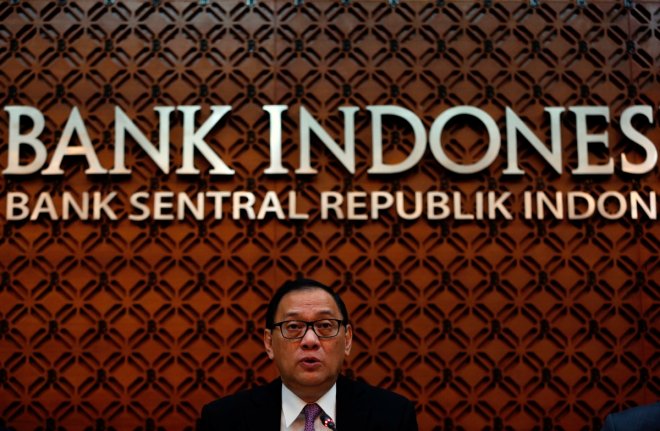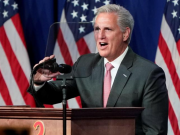
Bank Indonesia (BI) has retained its Seven-Day Reverse Repo Rat (7DRRR) at 4.75% for the eighth time in a row. The rate remains unchanged since October last year, citing the high potential inflation and external pressures.
The move was made amid the United States Federal Reserve's plans to raise the interest rates in June. BI governor Agus Martowardojo told Antara News that the central bank will continue its adoption of a neutral monetary policy for the first half of the year. Agus said the bank will prioritise its economic stability in support of a sustainable economic growth.
"We will also allow the rupiah exchange rate to fluctuate, only if it reflects our economic fundamentals," he said.
The central bank aims to earmark the inflation rate this year at between 3% to 5% year-on-year (YoY). Agus said the bank was on alert for inflationary pressures after the nation's inflation peaked 4.17% YoY in April. He said the pressures were in sight as the government was likely to spur its plans to adjust the electricity subsidy.
BI also sees load arising from the volatile pressures of foodstuff at the end of the month spurred by the high demand during Ramadhan.
Meanwhile, Malaysia recorded a strong 5.6% growth in its economy in the first quarter of the year, with Bank Negara Malaysia governor lauding the robust growth to a stronger consumption activity and inflow of investments.
Malaysia's Central Bank (BNM) governor, Datuk Muhammad Ibrahim, said steep growth in the first three months was contributed by the services sector where 5.8% growth was recorded while the manufacturing, mining, agriculture and construction sector recorded growth of 5.6%, 1.6%, 8.3% and 6.5% respectively as reported in the New Straits Times.
"The economy is set for better performance with the support of exports and our diversified economy will help us withstand domestic and external challenges," Muhammad Ibrahim said.
The central bank said headline inflation which averaged at 4.3% was expected to dwindle from the second quarter onwards while the current account remains healthy in a surplus due to lower good surplus coupled with a larger services deficit.









